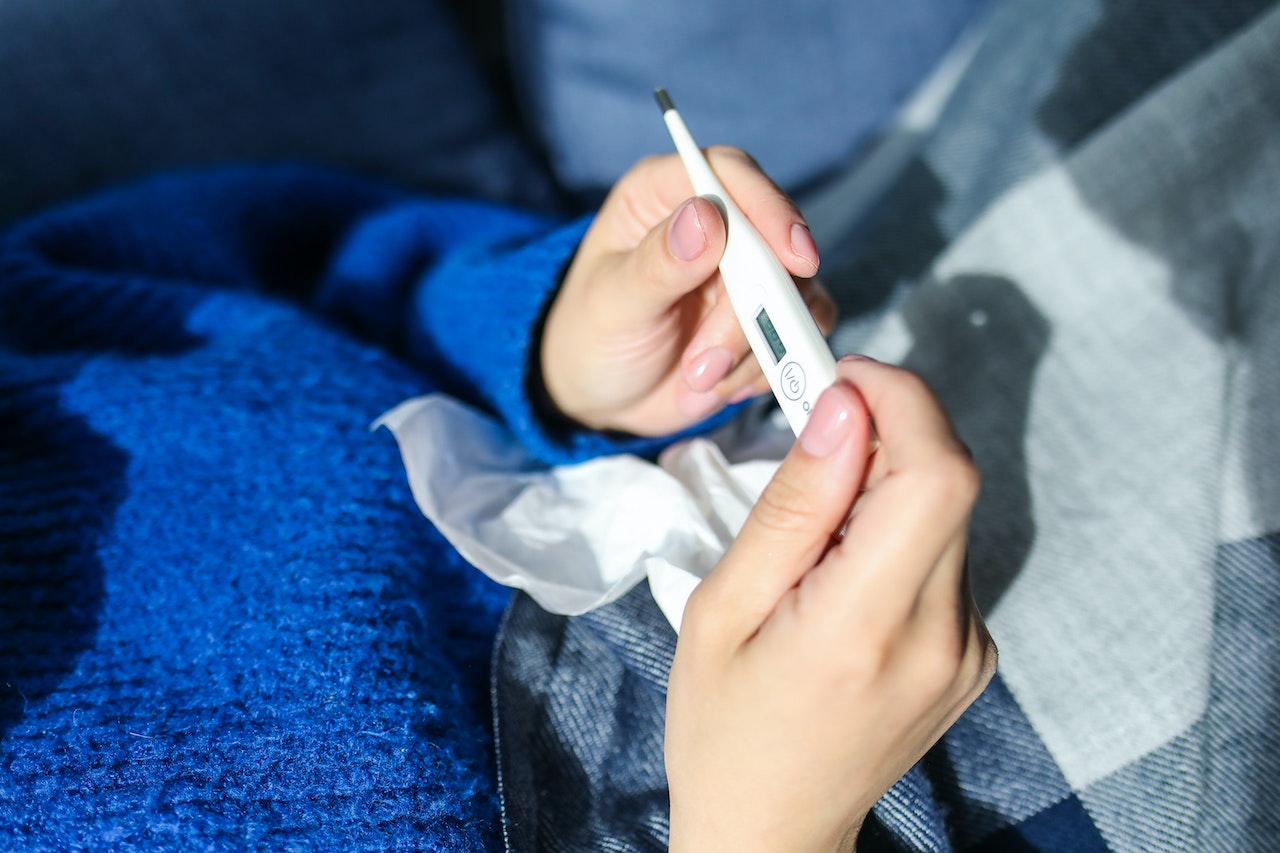It’s normal to be worried when you test positive for COVID. You’ve heard a lot about the Omicron variant, you know that the symptoms vary from barely existent to severe, but you can never be sure how your body will react.
However, you should know that the number of patients with COVID is still high, which means that you’re definitely not alone and that people have already found effective ways to control the symptoms and make themselves feel better at home. Here are some of the steps you can take to look after yourself upon being tested positive for Omicron.
Find a good quarantine space
Once you learn that you’ve caught COVID, the first thing you should do is isolate yourself, so as not to transmit it to others. This is particularly important in the case of the Omicron, as it seems to be more contagious than the other COVID variants.
First of all, you should figure out a plan that can keep you away from the rest of the household members. If you have your own room and your home has more than one bathroom, that’s great. However, many people live with roommates, in contained spaces, where they can’t really steer clear of those they live with. If your parents, siblings or other relatives’ home is bigger, talk to them and stay with them for a few weeks.
Perhaps somebody close to you owns a holiday home you can use, which is another option to consider. If none of this works, check if your city has free accommodation for those who have COVID and if there’s room for you there.
Be kind to yourself
Treating yourself with care and kindness is a good way to help your body and mind get through Omicron in less time and with more ease. One of the first things to do is give yourself a rest. This means that you shouldn’t do anything that tires or stresses you. Instead, you should sleep as much as your body tells you to, be more passive than usual and relax.
Pay attention to your mental health as well, since coping with anxiety during COVID-19 can sometimes be challenging. Aside from that, you should drink plenty of fluids, especially warm ones, such as tea. This is particularly important for those whose symptoms include vomiting and diarrhea. Keep your meals small and light and eat them more frequently. Focus on fresh food, such as fruit and vegetables, as you’ll probably benefit from the nutrients in them.
Warm soup is also an excellent option. Don’t keep yourself locked up in a stale room. Open your windows as often as you can, and perhaps even take short walks late at night or early in the morning, when you’re less likely to come across other people. Fresh air will surely do your overall well-being good.
Get re-tested at home
If your symptoms aren’t really noticeable and you don’t feel ill, you might feel inclined to leave your home sooner than you should. If this happens, you might be torn between getting tested in a laboratory and staying away from other potentially sick people. In such cases getting an at-home COVID test might be the thing to do.
However, it’s crucial to ensure that your test is still usable. Namely, Australians have recently been warned about the validity of their home tests, as these shouldn’t be used after their expiration date or if they were stored inadequately. This is why it’s better to purchase a new reliable rapid antigen test kit in Australia, as that way you’ll know that your test is completely in order. There are tests that allow you to upload the results online and receive a certificate, and there are easy-to-use tests which give you the results in no more than 20 minutes.
Whichever option you choose, it’s wise to get tested before you start going to school or work again, to make sure you aren’t positive anymore.
Watch out for serious symptoms
If your symptoms are mild, there’s probably no reason to be unsettled, but you should definitely monitor yourself and be alert for any drastic changes in your health. For instance, if your fever runs higher than 38°C, if your face becomes bluish or if you feel confused and disoriented, you should contact your MD or the local COVID center.
Similarly, if you experience breathing difficulties, continuous chest pain, or you’re too tired to stay awake, it’s time to ask for help. If you don’t know who to call, the emergency services are always at your disposal. Plus, there are helpful government websites you can turn to, such as the Australian Department of Health and Aged Care, that cite the most common symptoms and tell you how and where you can get support for your COVID-related problems.
In conclusion
Keeping an eye on your symptoms, taking things slowly and being mindful of what your body is telling you can go a long way in making you feel better. So, follow these smart tips to get well soon.
Author bio: Brigitte Evans is an experienced lifestyle blogger with a passion for design, culture, and storytelling. She’s a regular contributor to numerous lifestyle blogs and online magazines. Brigitte also loves to travel and strives to visit as many states and countries as she can.
Also Read: 5 Ways to Cope with Anxiety as a Family During the COVID-19
